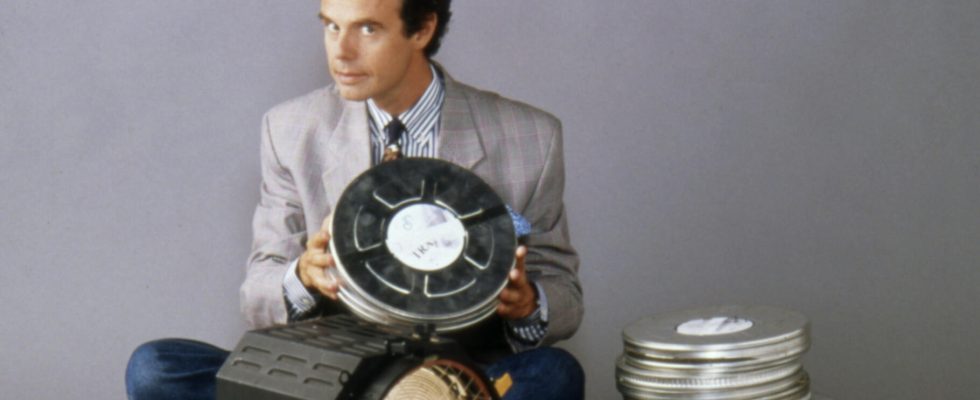Frederic PIAU / Gamma-Rapho via Getty Images
Frédéric Mitterrand was passionate about cinema.
CULTURE – Frédéric Mitterrand was a politician, but he was also a man of culture and above all, of cinema. Nicolas Sarkozy’s former minister died at the age of 76 after a fight against ” an aggressive cancer »his family announced to AFP this Thursday, March 21.
Frédéric Mitterrand has had many lives: minister, but also journalist, teacher, writer, host, and also director, producer and screenwriter. Behind these changes of direction, one constant: he deeply loved cinema. Many were unaware of it until the release of his latest book last spring, but Frédéric Mitterrand had a real adoration… for Brad Pitt. He had already put it down on paper in 2007 with his book Cannes festivalbefore confirming it with a biography dedicated to one of the biggest Hollywood stars of the 20th century.

In an interview given to our colleagues at Point during the release of Brad in April 2023, he explained the origin of his interest in the American comedian, which began with Thelma and Louise. “ This is the founding moment of the myth, if it exists. And the first time I saw it on the big screen. I compare this appearance to that of James Dean. He’s the thug who came out of nothing who drags you in and who, 40 years later, is still there. This continuity fascinates me. »
This fascination even pushed Frédéric Mitterrand to slip into the shoes of Brad Pitt for a photo shoot. On the occasion of the release of the book, he carried out a shooting for Paris Match in which he disguised himself and imitated some of Brad Pitt’s most cult characters. In front of the lens of photographer Sacha Goldgerber, Frédéric Mitterrand donned the costume of Cliff Booth in Once Upon A Time in Hollywoodand Tyler Durden in Fight Club.
Frédéric Mitterrand, a life in cinema
The 7th art marked the end of his career as a writer, but not only that. Cinema has always been an integral part of his life, since a young age. In 1951, when he was barely 4 years old, young Frédéric was already posing for the famous Harcourt studio. A few years later, he starred in his first film, the feature film Fortunat by Alex Joffé, where he notably plays opposite Michèle Morgan and Bourvil. In 1974, he appeared in the casting of the film Say it with flowers, by Pierre Grimblat alongside Delphine Eyrig and Fernando Rey. Then followed some small roles in The Musician Assassin, Roberte, Short Memory, Fireworks, Let there be light, And Mad about Rachid in transit on Mars.

If his acting career is dotted, he never stays away from cinema for long. As soon as he finished his studies, and after a few years teaching at the bilingual school in Paris, he took charge of (and then bought) a cinema in the 14th arrondissement of the capital. Over the years, Frédéric Mitterrand created a veritable network of Olympic theaters throughout Paris, renowned for their avant-garde and cutting-edge programming.
He even tried his hand at directing in 1981 with the documentary film Love letters to Somalia. His directorial filmography also counts Paris seen by…20 years later (1984), Madame Butterfly (1995) The land of innocence, childhood and adolescence by François Mitterrand (2017) and Hollywood, the dream life of Lana Turner (2018).
At the same time, Frédéric Mitterrand successfully launched into other professions, always focused on cinema, such as production, but also and above all journalism and animation. Over the years, he has presented numerous programs in different formats, all dedicated to the 7th art and to those who make it: Stars and Canvases, Ciné-Fêtes, Actor Studio, Ciné-Club, or Near Fred’s.
“ Let us not forget that if cinema fully participates in shaping our culture, it is because it has the virtue of bringing us together, because it is a spectacle. Let us not forget that the individual screen will never replace the poetic and aesthetic power of the image projected on the big screen, the collective emotion it provokes and the thrill it arouses. » he said at the end of a speech given during the 65th Congress of the National Federation of French Cinemas in 2010.
Also see on HuffPost :

